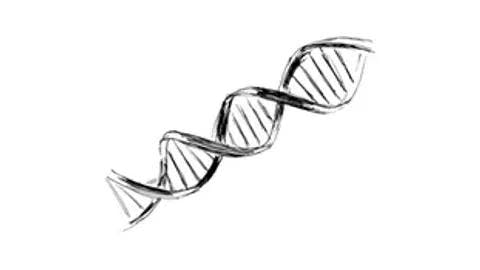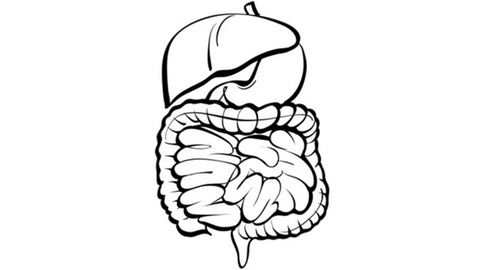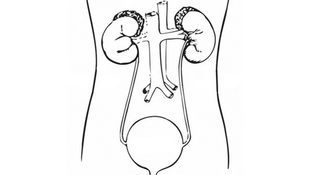Nadofaragene Firadenovec Continues to Demonstrate Durable Activity in NMIBC
Three-year data showed durable clinical activity with nadofaragene firadenovec-vncg in patients with high-risk, BCG-unresponsive non–muscle-invasive bladder cancer with carcinoma in situ with or without papillary tumors.
Stephen A. Boorjian, MD

Findings from the phase 3 trial rAd-IFN-CS-003 (NCT02773849) continued to show ongoing durable clinical activity for nadofaragene firadenovec-vncg (Adstiladrin) in patients with high-risk, BCG-unresponsive non–muscle-invasive bladder cancer (NMIBC) with carcinoma in situ (CIS) with or without papillary tumors (± Ta/T1).1 The 3-year data presented at the 2023 Society of Urologic Oncology Annual Meeting showed that at the 36-month follow-up, 25.5% (14 of 55) of the patients who had a complete response at 3 months remained free of high-grade recurrence. Per Kaplan-Meier estimate, the probability of reaching a 36-month or more complete response duration was 34.2%. The median complete response duration was 9.7 months.
In the overall CIS plus/minus Ta/T1 cohort (n = 103), the median duration of high-grade recurrence-free survival was 6 months. The Kaplan-Meier–estimated cystectomy-free survival and overall survival rates were 53.8% and 90.4%, respectively.
“The management of patients with continued high-grade NMIBC after treatment with BCG remains challenging. These new Adstiladrin data emphasize the importance of obtaining long-term follow-up from novel therapies to establish treatment expectations,” lead investigator Stephen A. Boorjian, MD, the Carl Rosen Professor and David and Anne Luther Chair of the Department of Urology at Mayo Clinic, Rochester, Minnesota, stated in a press release.2

The CIS plus/minus Ta/T1 cohort included 107 patients with a median age of 72 years, 89% of whom were male. The median time from initial diagnosis of bladder cancer was 20 months. Overall, 99% of patients had received 2 or more courses of BCG prior to enrollment. Disease stage at study entry was CIS only for 81 patients, Ta plus CIS for 21 patients, and T1 plus CIS for 5 patients.1
Of the 107 patients in the CIS plus/minus Ta/T1 cohort, 103 patients were included in a 36-month efficacy analysis, and 4 did not meet the criteria for BCG- unresponsive NMIBC.
Patients were treated with 75 mL of nadofaragene firadenovec (3 × 1011 viral particles/mL) once every 3 months for a maximum of 4 doses. Per study protocol, patients receive 5-site biopsy at 12 months and patients who had no evidence of high-grade recurrence were eligible to continue receiving nadofaragene firadenovec every 3 months.
There were 4 patients (3.9%) who had progression to muscle-invasive disease, and 2 patients (1.9%) had to discontinue treatment due to AEs that included a grade 3 bladder spasm and a grade 2 instillation site discharge, although not considered to be serious AEs.
The trial remains ongoing, as the follow-up analysis is continuing with 5 years of treatment and monitoring.
Findings from the primary analysis of the phase 3 trial were previously published.3 The data showed that in the cohort of patients with BCG-unresponsive NMIBC (CIS ± Ta/T1; n = 103), 55 (53.4%) patients reached a complete response within 3 months of receiving their first dose of nadofaragene firadenovec. At 12 months’ follow- up, these complete responses were maintained in 25 (45.5%) of the 55 patients.
Nadofaragene firadenovec is approved by the FDA for the treatment of patients with high-risk BCG-unresponsive NMIBC with CIS with or without papillary tumors (± Ta/T1).4
REFERENCES
Boorjian SA, Narayan VM, Konety BR, et al. Efficacy of intravesical nadofaragene firadenovec-vncg for patients with bacillus Calmette-Guérin-unresponsive carcinoma in situ of the bladder: 36-month follow-up from a phase 3 trial. Presented at: 2023 Society of Urologic Oncology Annual Meeting; November 28-December 1, 2023; Washington, DC. Abstract 164.
New data show durable response following treatment with Adstiladrin (nadofaragene firadenovec-vncg). News release. Ferring Pharmaceuticals. November 29, 2023. Accessed November 29, 2023. https://tinyurl.com/3b7pyd35
Boorjian SA, Alemozaffar M, Konety BR, et al. Intravesical nadofaragene firadenovec gene therapy for BCG-unresponsive non-muscle-invasive bladder cancer: a single-arm, open-label, repeat-dose clinical trial. Lancet Oncol. 2021;22(1):107-117. doi:10.1016/S1470-2045(20)30540-4
FDA approves first gene therapy for the treatment of high-risk, non-muscle-invasive bladder cancer. News release. FDA. December 16, 2022. Accessed November 29, 2023. https://www.fda.gov/news-events/press-announcements/fda-approves-first-gene-therapy-treatment-high-risk-non-muscle-invasive-bladder-cancer
















